Astronomy
-
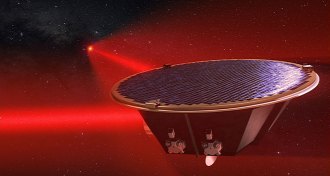 Astronomy
AstronomySatellite trio will hunt gravitational waves from space
The European Space Agency has green-lighted the Laser Interferometer Space Antenna, expected to launch in 2034.
-
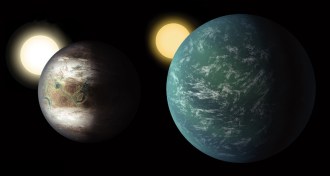 Astronomy
AstronomyKepler shows small exoplanets are either super-Earths or mini-Neptunes
The final catalog from the Kepler space telescope splits Earthlike exoplanets into two groups and pinpoints 10 new rocky planets in the habitable zone.
-
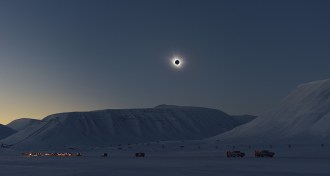 Astronomy
AstronomyEclipse watchers catch part of the sun’s surface fleeing to space
A serendipitous eruption during a solar eclipse showed relatively cool blobs of plasma, wrapped in a million-degree flame, streaming from the sun.
-
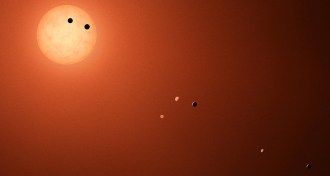 Astronomy
AstronomyLife might have a shot on planets orbiting dim red stars
The number of planets in the habitable zone of dim red suns, known as M dwarfs, is growing. They’re a good place to look for life.
-
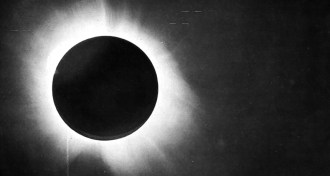 Astronomy
AstronomyEinstein’s light-bending by single far-off star detected
A measurement so precise Einstein thought it couldn't be done has demonstrated his most famous theory on a star outside the solar system for the first time.
-
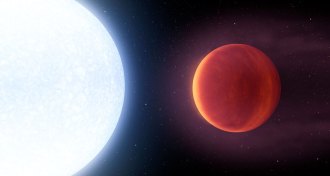 Astronomy
AstronomyScalding hot gas giant breaks heat records
KELT 9b’s sun blasts it with so much radiation that the planet’s dayside is hotter than most stars and its atmosphere is being stripped away.
-
 Physics
PhysicsLIGO snags another set of gravitational waves
Two black holes stirred up the third set of gravitational waves ever detected.
-
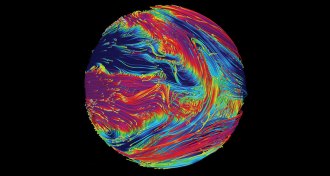 Astronomy
AstronomyMagnetism disrupts winds on ‘hot Jupiter’ exoplanet
Simulations of HAT-P 7b’s magnetic field give clues to why the exoplanet’s winds blow both east and west.
-
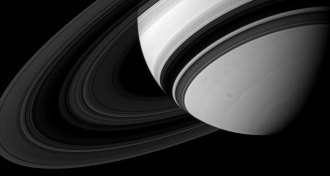 Science & Society
Science & SocietyThe first Cassini to explore Saturn was a person
Cassini, the spacecraft about to dive into Saturn, was named for the astronomical pioneer who first perceived the gap between the planet’s famous rings.
-
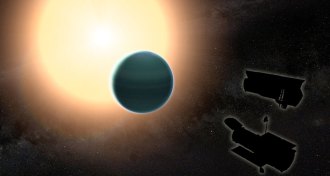 Planetary Science
Planetary ScienceWatery exoplanet’s skies suggest unexpected origin story
Compared with Neptune, HAT-P-26b’s atmosphere has few heavy elements, suggesting it formed differently than the ice giants in Earth’s solar system.
-
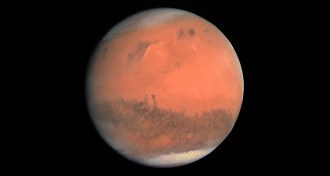 Planetary Science
Planetary ScienceMars may not have been born alongside the other rocky planets
Mars formed farther away from the sun than its present-day orbit, not near the other terrestrial planets, new research suggests.
-
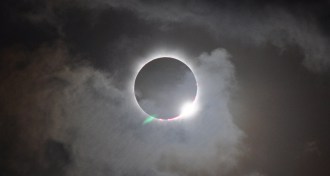 Astronomy
AstronomyRead up on solar eclipses before this year’s big event
Three new books chronicle the science, history and cultural significance of total solar eclipses.
By Sid Perkins